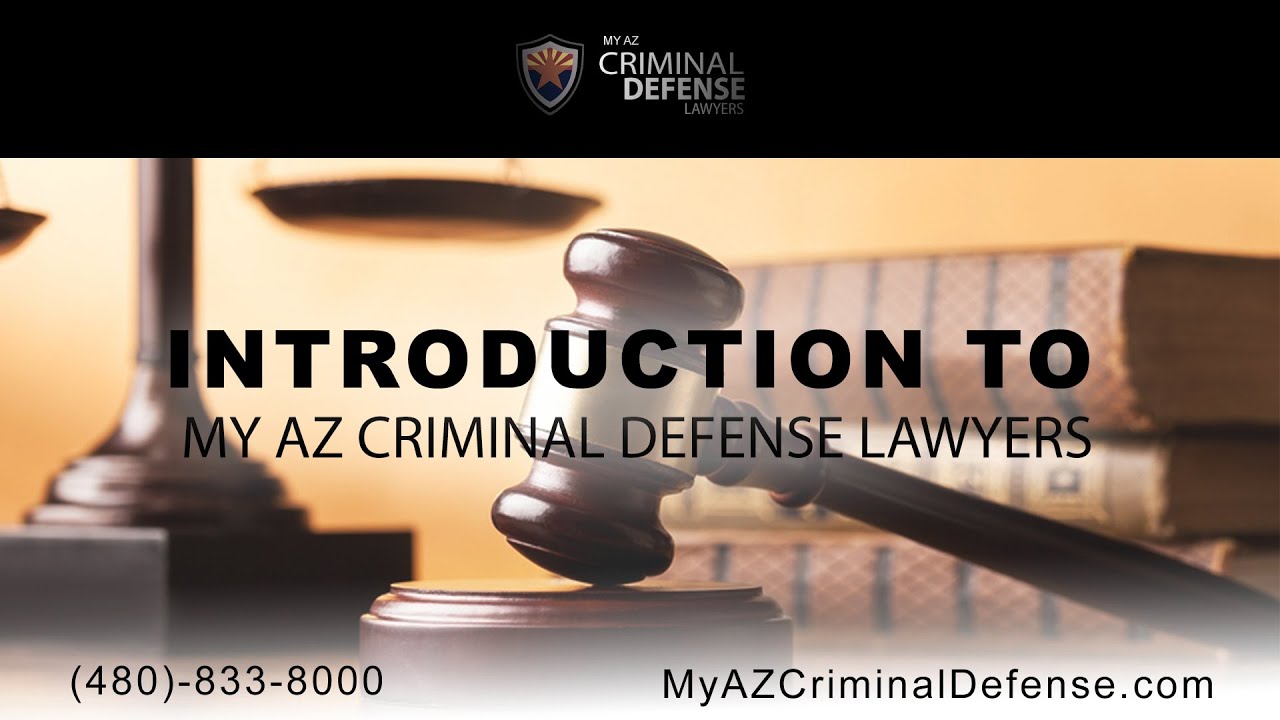What is Car Accident Arbitration?
Imagine you’re in a fender bender, and you and the other driver can’t agree on who’s at fault. Instead of spending months or even years in court, you could opt for car accident arbitration.
Car accident arbitration is a form of alternative dispute resolution (ADR) where disputing parties present their case to a neutral third party, known as an arbitrator. The arbitrator then reviews the evidence and makes a binding decision.
Arbitration is often faster and less expensive than going to court. It’s also private, so the details of your case won’t be made public.
However, there are some downsides to arbitration. For one, you give up your right to a jury trial. And if you’re not happy with the arbitrator’s decision, you have limited options for appeal.
Overall, car accident arbitration can be a good option if you’re looking for a quick and private way to resolve your claim. But it’s important to weigh the pros and cons carefully before making a decision.
Car Accident Arbitration: A Guide for Motorists
In the aftermath of a car accident, navigating the legal process can be daunting. One option for resolving disputes without going to court is arbitration. This streamlined process offers several advantages, including reduced costs and expedited timelines. However, it’s vital to understand how car accident arbitration works before deciding if it’s the right path for you.
How Does Car Accident Arbitration Work?
Unlike a traditional lawsuit, car accident arbitration involves a neutral third party, known as an arbitrator, who hears both sides of the case and renders a binding decision. This process typically unfolds in a less formal setting than a courtroom and often takes place in a private conference room or office.
The arbitrator, who is usually an experienced attorney or retired judge, is responsible for reviewing evidence, hearing testimony, and evaluating the arguments presented by both parties. They determine liability, fault, and the appropriate compensation for any damages incurred as a result of the accident.
Pros and Cons of Car Accident Arbitration
While car accident arbitration can offer significant benefits, it also has some drawbacks.
Pros
-
Reduced costs: Arbitration proceedings are typically less expensive than a lawsuit, saving parties the expense of court fees, attorney fees, and other costs associated with traditional litigation.
-
Expedited timelines: Arbitration allows for a faster resolution of disputes, as proceedings typically conclude within a matter of months, compared to years for a lawsuit.
-
Privacy: Arbitration is confidential, meaning that the proceedings and decisions are not open to the public, which can be beneficial for parties who prefer to keep their disputes private.
Cons
-
Limited discovery: In arbitration, discovery is often more limited than in a lawsuit, which can impact the ability of parties to gather evidence and build their case.
-
Lack of appeal: Arbitration decisions are typically final and binding, with limited opportunities for appeal, unlike court decisions.
-
Bias concerns: While arbitrators are expected to be impartial, there is always the potential for bias to influence their decisions, as they are often chosen by the parties involved in the dispute.
Ultimately, the decision of whether to pursue car accident arbitration should be made on a case-by-case basis, considering the specific circumstances and the individual’s goals. Consulting with an experienced attorney can help individuals make an informed decision and navigate the process effectively.
Car Accident Arbitration: An Alternative Path to Dispute Resolution
When the aftermath of a car accident leaves you grappling with injuries and financial burdens, seeking compensation can be a daunting task. The traditional route of litigation can be time-consuming, expensive, and emotionally draining. However, there’s an alternative approach that offers significant advantages: car accident arbitration.
Benefits of Car Accident Arbitration
Arbitration stands out as a compelling option for several reasons:
**1. Swift Resolution:**
Arbitration is renowned for its speed. Unlike court proceedings that can drag on for months or even years, arbitration typically concludes within a few weeks or months. This expedited process can bring much-needed closure and financial relief to accident victims.
**2. Cost-Effectiveness:**
Arbitration is far more cost-effective than litigation. It eliminates the need for extensive discovery, witness testimony, and jury selection, significantly reducing legal fees and court costs. This cost savings can translate into higher compensation for the injured party.
**3. Confidentiality and Flexibility:**
Arbitration proceedings are private, unlike open court hearings. This maintains confidentiality, shielding the parties involved from public scrutiny and potential damage to their reputations. Additionally, arbitration offers flexibility in scheduling and location, allowing for greater convenience and less disruption to daily lives.
**4. Experienced Decision-Makers:**
Arbitrators are typically experienced legal professionals or industry experts. They bring a wealth of knowledge and expertise to the table, ensuring that disputes are resolved fairly and efficiently.
Conclusion
Car accident arbitration presents numerous benefits over traditional litigation. Its speed, cost-effectiveness, privacy, flexibility, and expert decision-making can make it the ideal choice for those seeking a swift and equitable resolution to their car accident claims. By embracing arbitration, accident victims can navigate the complexities of dispute resolution with greater ease and efficiency.
Car Accident Arbitration: A Faster, Less Adversarial Path to Resolution
When involved in a car accident, it’s natural to wonder about the potential legal path forward. While traditional litigation is often the first thought, arbitration offers an alternative that can be both faster and less adversarial. Consider arbitration if you prefer a less adversarial and faster resolution process for your car accident claim.
When to Consider Car Accident Arbitration
Arbitration is a form of alternative dispute resolution in which a neutral third party, known as an arbitrator, hears evidence and makes a decision on a legal matter. It’s a less formal setting than traditional litigation and is typically faster and less adversarial. Arbitration can be binding or non-binding. In binding arbitration, the arbitrator’s decision is final and legally binding on both parties.
Advantages of Car Accident Arbitration
Arbitration offers several advantages over traditional litigation. Firstly, it’s much faster. Arbitration can be resolved in months, compared to years for litigation. Secondly, it’s less adversarial. Arbitration proceedings are more informal and less contentious, which can be beneficial in emotionally charged situations like car accidents.
Disadvantages of Car Accident Arbitration
While arbitration offers several advantages, there are also some potential disadvantages. One is that the arbitrator’s decision is final. In traditional litigation, you have the right to appeal an unfavorable decision, but this is not the case in binding arbitration. Additionally, arbitration can be expensive, with costs comparable to litigation.
Deciding If Car Accident Arbitration Is Right for You
Whether car accident arbitration is right for you depends on your individual circumstances. If you’re looking for a faster, less adversarial resolution process, arbitration may be a good option. However, if you’re concerned about the finality of the arbitrator’s decision or the potential costs, you may want to consider traditional litigation instead.
Car Accident Arbitration: Unveiling the Drawbacks
Following a car accident, navigating the legal landscape can be daunting. One option that has gained popularity is arbitration, a form of private dispute resolution. While arbitration offers swift and confidential proceedings, it’s not without its drawbacks. Understanding these limitations can help you make an informed decision about whether arbitration is the right path for your case.
.
Benefits of Arbitration
Arbitration offers several advantages over traditional litigation. The process is generally faster, less adversarial, and more private, making it an appealing option for those seeking a quick and discreet resolution. Additionally, arbitration decisions are typically binding, eliminating the risk of a drawn-out appeals process.
Drawbacks of Car Accident Arbitration
While arbitration can be beneficial in certain situations, it also has several drawbacks that should be considered carefully. Here are five key disadvantages to be aware of:
1. Limited Scope of Review
Unlike court proceedings, arbitration decisions are not subject to the same level of judicial review. This means that if you’re unhappy with the arbitrator’s ruling, your options for appeal are extremely limited. In most cases, the arbitrator’s decision is final and binding, leaving you with no recourse.
2. Bias Concerns
Arbitrators are private individuals who are not subject to the same ethical standards as judges. As a result, there’s a risk of bias or conflicts of interest that could impact the outcome of your case. This is especially concerning in cases involving large corporate entities, as the arbitrator may have prior ties to the company or its representatives.
3. Lack of Discovery
In arbitration, the discovery process is typically more limited than in traditional court proceedings. This means that you may have less access to important documents and evidence that could help support your case. This can make it difficult to fully present your side of the story and can put you at a disadvantage.
4. Costly and Time-Consuming
Despite the perceived efficiency of arbitration, the process can be both costly and time-consuming. The arbitrator’s fees and other expenses can quickly add up, and the proceedings can take several months or even years to complete. This can be a significant financial burden, especially for victims of serious car accidents who may already be facing significant medical expenses.
5. Less Advantageous in Complex Cases
Arbitration may be less advantageous in complex cases or when seeking a higher settlement amount. Complex cases require extensive evidence and legal analysis, which can be difficult to present within the confines of arbitration. Additionally, arbitrators tend to award lower settlements than juries, so if you’re seeking maximum compensation, arbitration may not be the best option.
In conclusion, while arbitration offers potential benefits, it’s important to weigh the drawbacks carefully before making a decision. For victims of car accidents, understanding the limitations of arbitration can help ensure that they receive fair and just compensation for their injuries.
Car Accident Arbitration: A Comprehensive Guide
If you’ve been in a car accident, you may be wondering what your options are for getting compensated for your injuries and damages. One option is to go through the arbitration process, which is a form of alternative dispute resolution that can be less expensive and time-consuming than going to court. Here’s what you need to know about car accident arbitration.
What is Car Accident Arbitration?
Car accident arbitration is a process in which a neutral third party, known as an arbitrator, hears evidence and makes a decision about the case. The arbitrator’s decision is usually binding on both parties, which means that you can’t appeal it to a higher court.
How to Choose an Arbitrator
One of the most important steps in the arbitration process is choosing an arbitrator. Here are a few things to keep in mind when making your selection:
- **Experience:** Choose an arbitrator who has experience in handling car accident cases.
- **Impartiality:** The arbitrator should be impartial and not have any conflicts of interest.
- **Expertise:** The arbitrator should have expertise in the area of law that is relevant to your case.
- **Availability:** The arbitrator should be available to hear your case within a reasonable time frame.
- **Cost:** The arbitrator’s fees should be reasonable and within your budget.
You can find arbitrators through a variety of sources, such as the American Arbitration Association or the National Arbitration Forum. Once you’ve selected an arbitrator, you’ll need to sign an arbitration agreement. This agreement will set forth the terms of the arbitration, including the rules of procedure and the arbitrator’s fees.
The Arbitration Process
The arbitration process typically involves the following steps:
- **Discovery:** The parties exchange information and documents related to the case.
- **Hearing:** The parties present their evidence and arguments to the arbitrator.
- **Decision:** The arbitrator issues a decision, which is usually binding on both parties.
Pros and Cons of Car Accident Arbitration
There are a number of pros and cons to car accident arbitration. Some of the pros include:
- **It’s less expensive than going to court.
- **It’s less time-consuming than going to court.
- **It’s more private than going to court.
- **It’s less adversarial than going to court.
Some of the cons of car accident arbitration include:
- **The arbitrator’s decision is usually binding on both parties.
- **You can’t appeal the arbitrator’s decision to a higher court.
- **The arbitrator may not be as experienced or impartial as a judge.
Is Car Accident Arbitration Right for You?
Ultimately, the decision of whether or not to go through car accident arbitration is a personal one. There are a number of factors to consider, such as the pros and cons of arbitration, the specific circumstances of your case, and your own personal preferences. If you’re considering arbitration, it’s important to talk to an attorney to discuss your options and make the best decision for you.
Car Accident Arbitration: A Guide for Motorists
In the aftermath of a car accident, navigating the legal landscape can be both daunting and confusing. Arbitration, an alternative dispute resolution process, offers a streamlined and often less adversarial approach to handling claims. Here’s a comprehensive guide to car accident arbitration, empowering you with the knowledge and strategies to navigate this process effectively.
Preparing for Arbitration
Meticulous preparation is crucial for a successful arbitration outcome. Gather all pertinent evidence, including medical records, police reports, and witness statements. Consult with an attorney who specializes in car accident arbitration. They can provide invaluable guidance and represent your interests throughout the process. Additionally, educate yourself about the arbitration process, including the rules and procedures that will govern your case.
Evidence Gathering
Building a strong case requires robust evidence. Obtain medical records documenting your injuries and treatment. Secure police reports that detail the accident circumstances. Collect witness statements from individuals who witnessed the collision or its aftermath. This evidence will support your claim and strengthen your position during arbitration.
Attorney Consultation
An experienced car accident arbitration attorney can be an invaluable asset. They will assess your case, advise you on your legal options, and guide you through the arbitration process. A skilled attorney can negotiate on your behalf, present your case persuasively, and help you achieve a fair settlement.
Understanding the Process
Familiarity with the arbitration process empowers you throughout the proceedings. Arbitration is a private, often less formal process than a traditional court trial. It typically involves a neutral arbitrator who hears evidence and renders a binding decision on the case. Arbitration rules vary, so it’s essential to understand the specific procedures that will apply to your case.
Presentation of Evidence
During the arbitration hearing, you’ll have the opportunity to present evidence supporting your claim. Prepare clear and concise arguments that emphasize the facts of your case. Utilize visual aids, such as exhibits and charts, to make your case more compelling.
Negotiating a Settlement
Arbitration provides a platform for negotiation and settlement. Your attorney will work with you to determine a fair settlement amount that compensates you for your injuries and damages. Negotiation involves give and take, so be prepared to compromise while advocating for your best interests.
Binding Decision
The arbitrator’s decision is generally binding, meaning that both parties must adhere to the outcome. However, there may be limited opportunities to challenge the decision if there are procedural errors or other legal grounds for appeal.
Car Accident Arbitration: A Detailed Guide
Have you ever found yourself wondering what car accident arbitration is all about? It’s an alternative to going to court that can save you time and money and help you get a fair settlement. You’ll be surprised by how easy the process can be. Let’s dive in and take a closer look at what’s involved.
How Does Arbitration Work?
Arbitration is a process where a neutral third party (the arbitrator) hears the arguments of both parties and makes a final, binding decision. This differs from court, where a judge or jury makes the final call. A big difference between the two is arbitration is much less formal than court proceedings. That means you can usually get your case resolved much faster without all the back-and-forth of a trial.
Arbitration Process
The arbitration process varies depending on the rules of the arbitration forum you choose. However, it typically involves the following:
1. Discovery, where you and the other party exchange information and documents
2. Selecting an arbitrator
3. Having a hearing, where both parties present their cases
4. Receiving the arbitrator’s decision
Benefits of Arbitration
There are several benefits to choosing arbitration over going to court. These include:
* **Faster** Arbitration is generally much faster than going to court. This means you can get your case resolved sooner and move on with your life.
* **Less expensive** Arbitration is often less expensive than going to court. This is because you don’t have to pay for court costs, such as filing fees and witness fees.
* **More private** Arbitration is a private process, meaning the public won’t have access to your case file. This can be beneficial if you’re concerned about your privacy.
* **Binding** The arbitrator’s decision is binding in the same way as a judge or jury’s decision. This means that you can’t appeal it to a higher court unless there’s clear and convincing evidence that the arbitrator made a mistake.
Disadvantages of Arbitration
While arbitration offers several benefits, there are also some disadvantages to be aware of, such as:
* **Less formal** Arbitration is a less formal process than going to court. This means that the rules of evidence are more relaxed, and you may not have the same rights as you would in court, like the right to cross-examine witnesses.
* **Less predictable** Arbitration decisions are less predictable than court decisions. This is because arbitrators are not bound by precedent, which means they can make decisions based on their own interpretation of the law.
* **Limited right to appeal** If you’re not happy with the arbitrator’s decision, your right to appeal may be limited. This differs from court, where you typically have the right to appeal any decision.
Should You Choose Arbitration?
Whether or not arbitration is right for you depends on your individual circumstances. If you’re looking for a faster, less expensive, and more private way to resolve your car accident case, then arbitration may be a good option for you. However, if you’re concerned about the lack of formality and the limited right to appeal, then you may want to consider going to court instead.
What Is Car Accident Arbitration?
Car accident arbitration is a form of alternative dispute resolution (ADR) in which the parties to a car accident agree to submit their dispute to a neutral third party, known as an arbitrator, for a binding decision. Arbitration is often used in car accident cases because it is typically faster and less expensive than traditional litigation. Additionally, arbitration can be more private than litigation, which can be beneficial for parties who wish to keep their dispute out of the public eye.
Benefits of Car Accident Arbitration
There are several benefits to using arbitration to resolve car accident disputes. First, arbitration is typically faster than traditional litigation. This is because arbitration proceedings are not subject to the same procedural delays that can occur in court. Second, arbitration is often less expensive than litigation. This is because arbitration fees are typically lower than court costs. Third, arbitration can be more private than litigation. This is because arbitration proceedings are not open to the public.
Drawbacks of Car Accident Arbitration
There are also some drawbacks to using arbitration to resolve car accident disputes. First, arbitration is binding. This means that the parties to the arbitration are bound by the arbitrator’s decision and cannot appeal it to a higher court. Second, arbitration can be less transparent than litigation. This is because arbitration proceedings are not open to the public and the parties are not required to disclose all of the evidence that they have. Third, arbitrators are not always impartial. This is because arbitrators are often chosen by the parties to the arbitration and may have a bias in favor of one party or the other.
How to Choose an Arbitrator
If you are considering using arbitration to resolve your car accident dispute, it is important to choose an arbitrator carefully. There are a number of factors to consider when choosing an arbitrator, including the arbitrator’s experience, expertise, and impartiality. You should also consider the arbitrator’s fees and availability.
The Arbitration Process
The arbitration process typically begins with the parties submitting a joint request for arbitration to the arbitrator. The arbitrator will then hold a hearing at which the parties will present their evidence and arguments. After the hearing, the arbitrator will issue a decision. The decision is typically binding on the parties and cannot be appealed to a higher court.
Enforcing the Arbitration Award
Arbitration awards are legally binding and can be enforced through the courts if necessary. If a party fails to comply with an arbitration award, the other party can file a motion with the court to enforce the award. The court will then issue an order requiring the party to comply with the award.
Get Help With Car Accident Arbitration
If you are involved in a car accident, you should consider using arbitration to resolve your dispute. Arbitration can be a fast, affordable, and private way to resolve your dispute. However, it is important to choose an arbitrator carefully and to understand the arbitration process before you agree to arbitrate your dispute.
Car Accident Arbitration: A Path to Resolution
Did you know that arbitration, an alternative to the traditional court system, can help resolve car accident disputes? When you think of legal settlements, lengthy court battles probably come to mind, whereas arbitration offers a different route that’s known for being faster and less expensive. Although it carries its own set of pros and cons, arbitration can potentially bring a timely resolution to your car accident case.
Alternatives to Car Accident Arbitration
If arbitration doesn’t align with your preferences, there are other avenues you can explore. Mediation is a process involving a neutral third party who facilitates discussions between you and the other party. Negotiation is another option, where you and the other party engage in direct communication to reach an agreement. Of course, filing a lawsuit is always an option, but it’s worth considering the time and resources involved in the traditional court system.
Factors to Consider When Choosing Arbitration
Deciding whether arbitration is right for your car accident case requires careful consideration. Here are some key factors to weigh:
- **Cost:** Arbitration is generally less expensive than going through the court system.
- **Speed:** Arbitration can resolve disputes more quickly than traditional litigation.
- **Privacy:** Arbitration proceedings are confidential, which can be important for those seeking to keep their case private.
- **Limited discovery:** In arbitration, the discovery process is typically more limited than in court, which can save time and money.
- **Binding decision:** The arbitrator’s decision is generally binding on both parties, making it a final resolution.
Ultimately, the best way to determine if arbitration is right for you is to consult with an attorney who can provide personalized advice based on the specifics of your case.




Leave a Reply